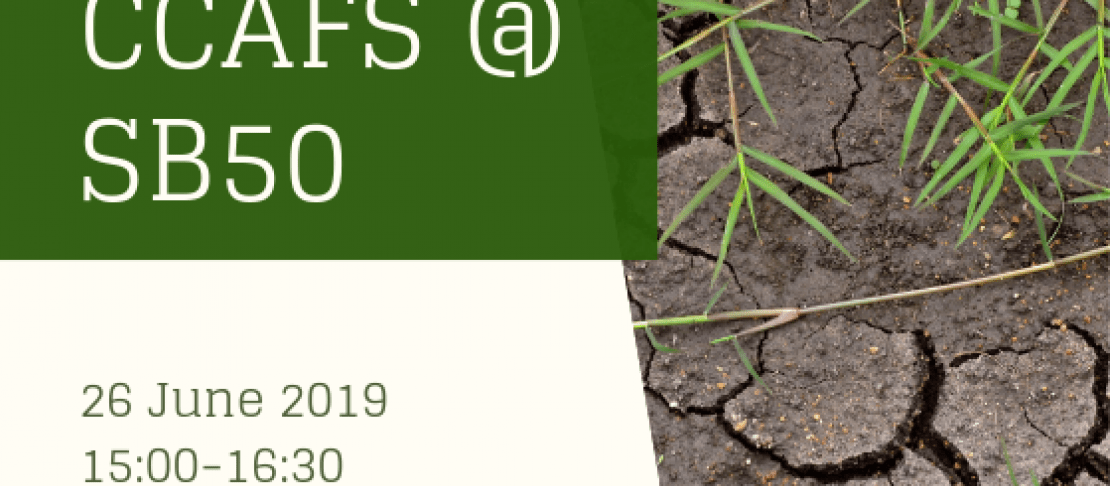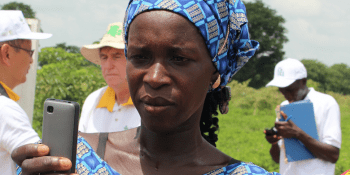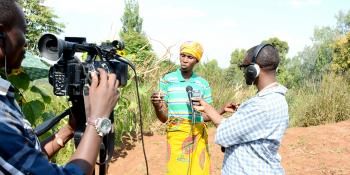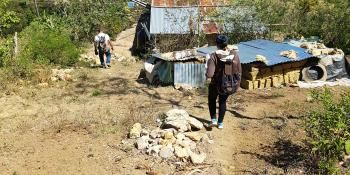CCAFS at SB50 | Raising ambition for adaptation in agriculture: responding to emerging evidence on rainfall changes

Dramatic rainfall changes for key crops are expected even with reduced greenhouse gas emissions. In an official side event at SB50, we discuss adaptation measures to respond to these changes.
Background
Rain-fed agriculture currently constitutes 60–95% of farmed land across the developing world. Changing rainfall patterns could have a large impact on agriculture in developing countries. Using over 20 different climate models, researchers have projected how precipitation could be affected by climate change. Model simulations for the four main emission scenarios were used identify the timeline when climate change causes rainfall to deviate significantly from the past, more than it would naturally. This is also called the time of emergence (TOE). This was done for the crop-growing regions of four major crops: wheat, rice, soybean and maize. This event aims to present findings from the study and discuss implications for adaptation planning and action with key stakeholders.
Objective
The aim is to start a dialogue on stepping up adaptation for agriculture in response to emerging evidence on rainfall changes for key crops, and to enable countries, international organizations, NGOs, and other agricultural adaptation stakeholders to make evidence-based decisions in response to emerging evidence on rainfall changes.
Agenda
Ana Maria Loboguerrero Rodriguez, Head of Global Policy Research, CCAFS | Welcome, side event objectives, introduction to speakers | 5 minutes |
Opening keynote | ||
Maisa Rojas Corradi, Associate Professor, Universidad de Chile and Director, Center for Climate and Resilience Research | 21st century emergence of robust precipitation changes across crop production areas | 10 minutes |
Andy Challinor, Professor of Climate Impacts, University of Leeds | Enabling evidence based action at the local, national, regional and global levels | 10 minutes |
Panel discussion: Raising ambition for adaptation in agricultural systems Format: ‘Chat show’ moderated by Ana Maria Loboguerrero Rodriguez | ||
George Wamukoya, Team Leader, African Group of Negotiators Expert Support TBD, International Water Management Institute Rebecca Carter, Deputy Director, Climate Resilience Practice, World Resources Institute David Howlett, Head of Policy, Global Resilience Partnership |
| 35 minutes |
Moderated Q&A with the audience | 20 min | |
Julio Cordano, Head, Climate Change and Sustainable Development Department, Ministry of Foreign Affairs, Chile | Final remarks and wrap up | 10 minutes |
Resources
- Press release: Dramatic rainfall changes for key crops expected even with reduced greenhouse gas emissions
- Journal article: Emergence of robust precipitation changes across crop production areas in the 21st century
- Info Note: Climate change affects rainfall patterns in cropproducing regions
- Summary blog: Science is not negotiable: Reflections from the UN climate talks in Bonn
- Web recording: Raising ambition for adaptation in agriculture: responding to emerging evidence on rainfall changes (click "Join the event" to watch the online recording)
Partners
This event is co-hosted by:
- The CGIAR Research Program on Climate Change, Agriculture and Food Security (CCAFS)
- University of Leeds
- International Center for Tropical Agriculture (CIAT)
- International Water Management Institute (IWMI)
This event page provides details for one of three official side events that CCAFS will co-host with partners during the 50th session of the Subsidiary Body for Scientific and Technological Advice (SBSTA50). To see other events that CCAFS is co-hosting or participating in, please click here.


